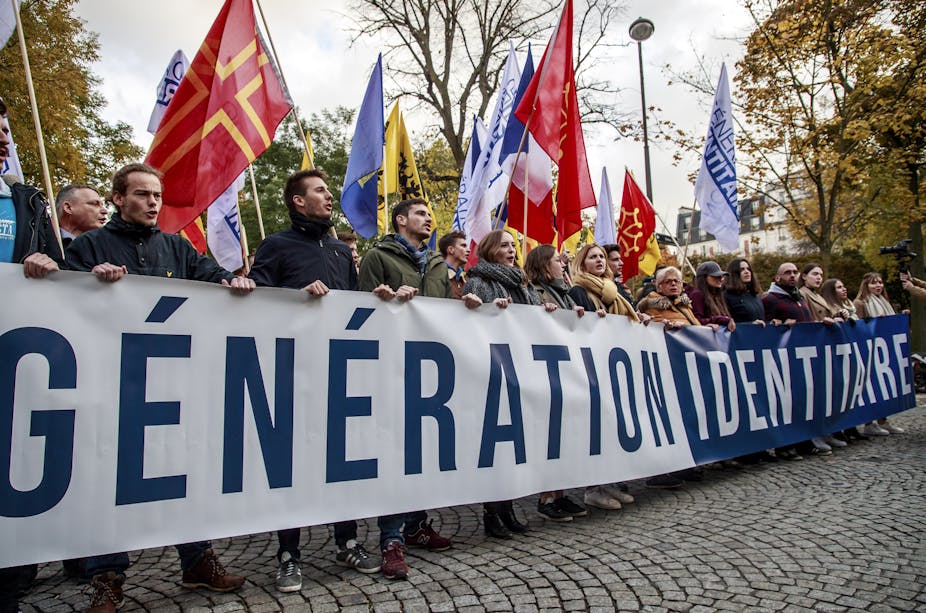After a bit of a hiatus, we’re bringing back The Conversation’s In Depth Out Loud podcast, the audio version of selected long form stories based on cutting edge research written by academic experts.
This episode is based on two years of in-depth historical analysis by Pablo de Orellana and Nicholas Michelsen at King’s College London.
After marching in the streets of Paris with the militant far-right group, Génération Identitaire, they met Charles, a young French man terrified by what he sees as the degeneration of western culture.
Nationalists such as Charles often refer to themselves as the New Right, or read thinkers who do. They are not all as radical as he is, but a diverse grouping of politicians share the stream of New Right ideas. These include Donald Trump, Brexiteers like Jacob Rees-Mogg, European nationalists like Marine Le Pen, Matteo Salvini and Viktor Orbán, and newcomers such as Santiago Abascal and his Vox party in Spain.
But this research explains why the comparisons of the New Right with fascism are inaccurate and unhelpful. And they tell how they traced the ideology that is fuelling the extreme nationalism, racism and sexism they saw in the streets to an unlikely source: Maurice Barrès, a French man born 150 years ago.
You can read the text version of the article here. The audio version is read by Laura Hood.
This story came out of a new project at The Conversation called Insights. Sponsored by Research England, our Insights team generate in depth articles derived from interdisciplinary research. You can read their stories here, or subscribe to In Depth Out Loud to listen to more of their articles in the coming months.
The music in this podcast is Night Caves, by Lee Rosevere. A big thanks to the Department of Journalism at City, University of London for letting us use their studios to record.





